- Advice
- Camping Tips
- Eco Camping
Eco Camping: Tips for a Greener Camping Experience
The basic principle of eco camping involves doing things to reduce your impact on the environment around you. As more people discover the wonders of getting in touch with nature, it’s increasingly important that everyone does their bit. Whether you’re an experienced camper, prefer to just spend your days in the outdoors or are only just discovering the benefits, the tips and advice below are worth a read.
1. Shop second-hand

Good for both the environment and your pocket, buying camping and outdoor gear pre-loved is a brilliant way to build your kit bag. Read our guide to second-hand camping gear to discover the best places to bag a bargain.
2. Take a reusable water bottle
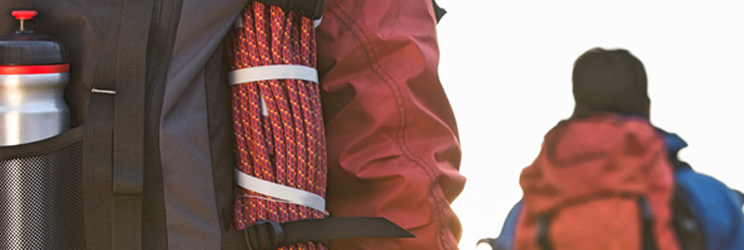
Our campsites always have fresh drinking water available, so you won’t need to buy bottled water at all during your holiday with us. Keep your bottle topped up, take it on days out, and save money on buying drinks on the go. View some of our recommended reusable water bottles.
3. Camp nearer to home
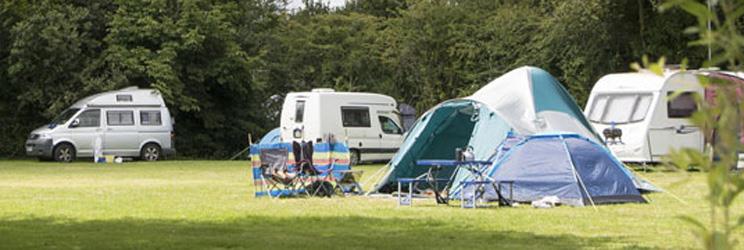
We’re not saying that you should stop touring the UK, because we know there’s so much to see and do! However, if you have a campsite you stay on regularly, and it’s a long way from home, you could cut your carbon footprint by looking at campsites nearby. We have sites all over the UK, from sunny clifftop campsites in Cornwall, to spectacular mountainous locations in the Highlands. View our campsites by region or search to see the variety of local campsites that are available.
4. Buy produce from a local supplier

Farm shops, market stalls and local producers are a great way to cut down on wasted packaging and support local businesses all over the UK. Vegetables, honey, eggs, bread and dairy, are just a few of the items you’re likely to find on sale. Check whether your campsite shop stocks locally sourced items (many of ours do) or ask our friendly site staff where to shop nearby. View our camping food inspiration.
5. Try no spend days

Staying close to your campsite and exploring the outdoors is a great way to limit your carbon footprint and spend less. In spring, bluebell woods make for wonderful walks, summer holidays are ideal for days spent at the beach and winter days are ideal for exploring English Heritage Sites or National Trust places.
6. Harness renewable energy
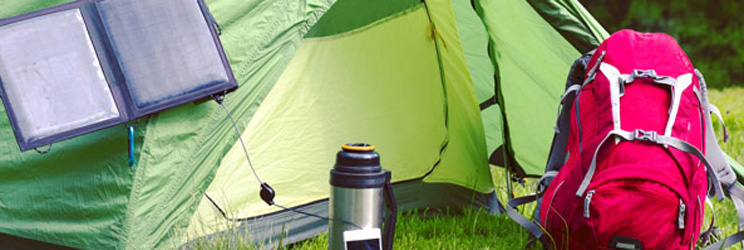
Solar-powered camping gear is readily available from outdoor retailers. Lights, speakers, chargers, generators and even ovens are available with solar capabilities. It’s also becoming more common to see caravans and motorhomes utilising solar panels to save on usage costs. For more information on how to use the sun to boost your eco-friendly camping credentials read our guide to solar power.
7. Leave unnecessary technology at home
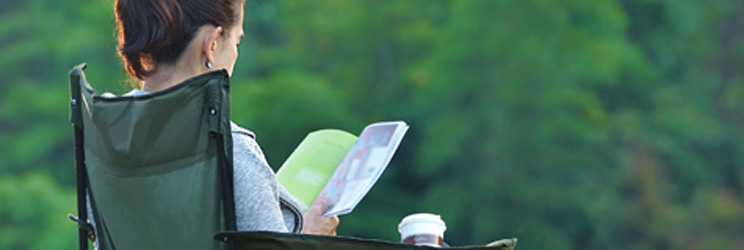
Consider whether TV’s, computers, tablets and kindles should have a place in your camping set up. Explore your surroundings on a walk, pack a deck of cards and pick up some books from a charity shop for entertainment. Take your mobile to check the weather, navigate and keep in touch with friends and family but leave any unessential electronics at home.
8. Keep to marked paths
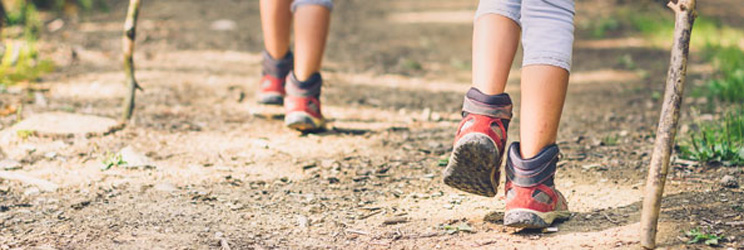
With walking being one of our favourite ways to explore our surroundings, it’s important to note that hard-soled shoes can damage delicate woodland, fauna and wildlife. Many outdoor attractions you visit will have marked trails for this reason. If your exploring in an area without marked walkways, be respectful of the environment and keep to well walked trails. If you're looking for a new pair of comfy shoes for your walking adventures, view our guide to walking boots.
9. Pay attention to campsite rules
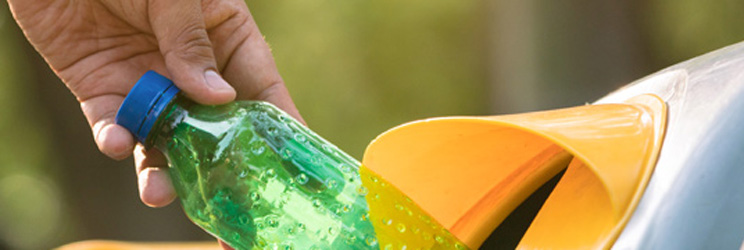
Rules on where to dispose of rubbish, how to recycle, and whether you can have a campfire or not are all enforced to protect campsites and surrounding areas. Following the rules set out by your campsite is a great way to be eco-friendly and respectful of other campers too.
10. Leave no trace
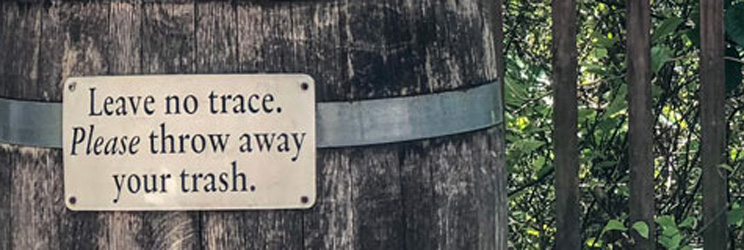
Leave no trace is the ultimate eco camping rule. There are seven principles of no trace camping, all revolving around leaving the environment in the same way you found it when camping. The principles are as follows: prepare well, pick durable ground to camp on, properly dispose of waste, leave behind anything you find, minimise the damage from fires, respect wildlife and other campers.
11. Save energy at home
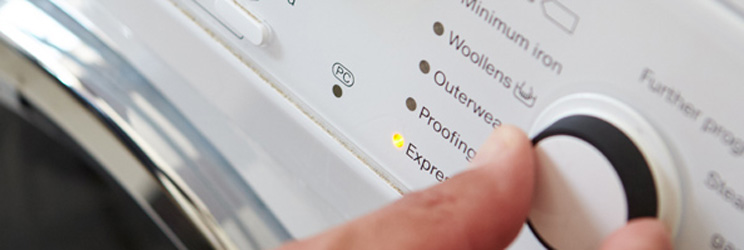
Before you leave for your camping trip, switch off and turn down everything you can. Don’t leave TVs on standby, turn off the heating and main appliances. Not only will you save money, but you’re also doing the planet a favour too.
12. Be mindful of toiletries
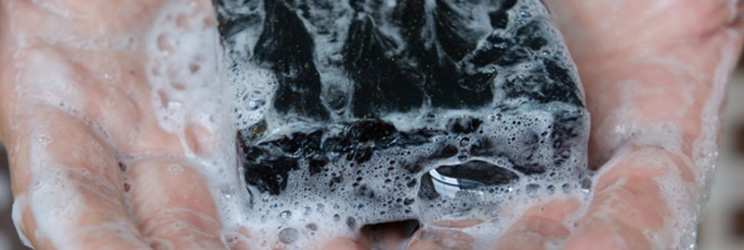
Are you squeezing all of the toothpaste out of the tube before buying a new one? Have you switched to paper-wrapped soap instead or shower gel? These are simple steps you can take to use your products more efficiently and cut down on plastic waste.
13. Meal prep and plan
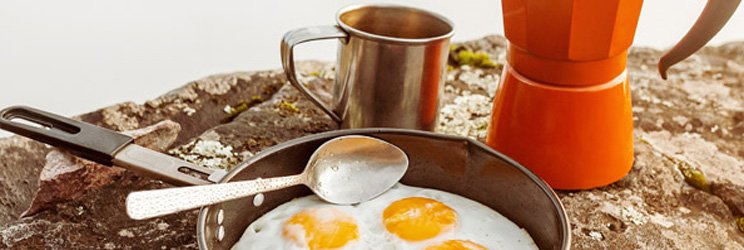
Avoid food waste by planning what you’re going to cook for each meal. That way you can take as much as you need and freeze or store anything spare at home.Check out our food blog for inspiration.
14. Get your pooch involved
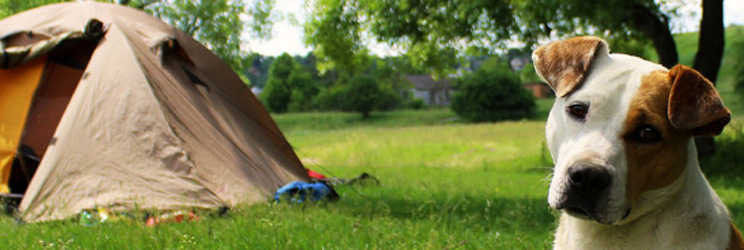
Did you know that there’s a growing market for eco-friendly dog supplies? You can find beds, leads, treats and toys which have all been manufactured or produced with an eco-friendly ethos. Members can make use of several discounts for their pooches including money off Postman Pooch and Albies Boutique, view these discounts.
15. Something broken? Mend it
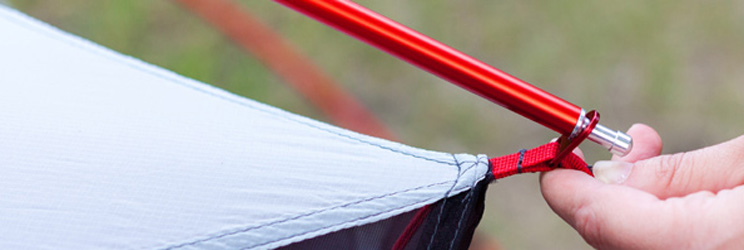
Rips, holes and damaged parts aren’t always the end of an item’s lifespan. Get creative and mend broken items. If you can’t repair it yourself, there’s bound to be someone that can.
16. Explore more on foot or by bike
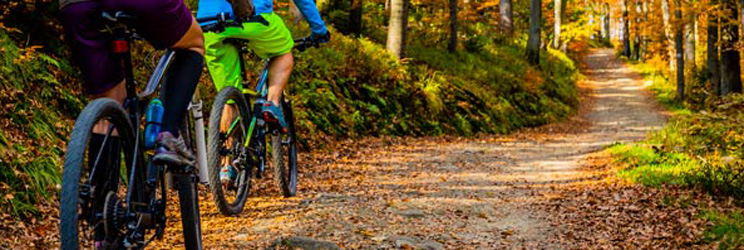
If you’re staying on one of our campsites and your planning a day off-site, why not walk or cycle to your destination if it’s under 30-minutes away? This is a good way to cut down on the number of vehicles on the road and a great way of finding your way around the local area.
17. Cut down on single-use items

Take kitchenware and cutlery you already have at home rather than using single-use items which will end up in the bin. Not only will you save money, but you’ll also save space by only packing one of every item for each person.
View more camping tips before setting off on your next camping adventure.